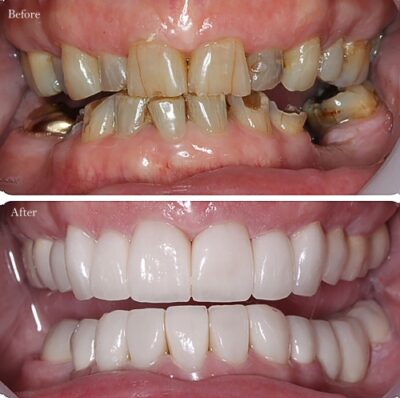What Does Dental Sense Do?
What Does Dental Sense Do?
Blog Article
The Best Guide To Dental Sense
Table of ContentsExcitement About Dental SenseOur Dental Sense DiariesThe Definitive Guide to Dental SenseWhat Does Dental Sense Do?
are medical gadgets surgically implanted right into the jaw to recover a person's ability to chew or their look. They supply support for fabricated (fake) teeth, such as crowns, bridges, or dentures. When a tooth is shed due to injury or illness, a person can experience problems such as fast bone loss, faulty speech, or changes to eating patterns that result in pain.Dental implant systems include a dental implant body and dental implant abutment and may also include an abutment fixation screw. Front tooth filling. The dental implant body is surgically placed in the jawbone in place of the tooth's origin. The oral implant joint is normally connected to the implant body by the abutment addiction screw and prolongs with gum tissues into the mouth to sustain the attached artificial teeth
(https://www.callupcontact.com/b/businessprofile/Dental_Sense/9469240)Structure of The Dental Implant System choosing dental implants, talk to your dental supplier about the prospective advantages and dangers, and whether you are a candidate for the treatment. Things to consider: Your general health and wellness is an essential consider establishing whether you are an excellent prospect for dental implants, for how long it will take to heal, and the length of time the dental implant might remain in location.
Smoking might influence the healing procedure and lower the long-lasting success of the dental implant. The recovery procedure for the dental implant body might take a number of months or longer, during which time you typically have a momentary joint in place of the tooth. the oral implant treatment: Very carefully comply with the oral health guidelines given to you by your oral supplier.
Our Dental Sense PDFs
Implant failing can lead to the need for an additional surgery to take care of or replace the implant system. Recovers the ability to chew Brings back cosmetic appearance Assists maintain the jawbone from shrinking as a result of bone loss Preserves the wellness of the bordering bone and gum tissues Helps maintain adjacent (close-by) teeth secure Boosts lifestyle Damages to bordering all-natural teeth throughout implant positioning Injury to the surrounding tissues throughout surgery, such as sinus perforation Injury during surgical procedure (as an example, fracture of surrounding jawbone) Poor feature, such as seeming like the teeth do not attack together normally A sensation that the tooth is loose or turning in position resulting from an abutment screw loosening up Implant body failing (looseness of the implant body) due to systemic infection, which might be extra likely in individuals with unrestrained diabetics issues as a result of local infection in bone and gums sustaining the dental implant body as a result of delayed healing, which may be more probable in individuals who smoke Problem cleaning up the gums around the implant, leading to poor oral hygiene Untreated periodontal disease Post-surgical tingling due to nerve impingement or damages Constantly alert wellness treatment providers and imaging service technicians that you have dental implants before look what i found any magnetic vibration imaging (MRI) or x-ray procedures.
FDA is not knowledgeable about any adverse occasions reported for MRI or x-ray procedures with oral implants. Oral implants systems are commonly constructed from products that comply with global consensus standards of the International Organization for Standardization (ISO) or ASTM International. These requirements have details of what makes a safe material.

A dental implant is a framework that changes a missing out on tooth. With screw-like devices, the specialist inserts an implant into the jawbone, and it acts as a support for a man-made tooth, called a crown.
How Dental Sense can Save You Time, Stress, and Money.
Some individuals are not eligible for oral implant surgery. It is for oral specialists to operate people with: severe illnessuncontrollable metabolic diseasebone or soft tissue condition or infectionIf these issues are settled, an individual can have the surgical procedure. In, dental surgeons avoid operating individuals with: If individuals with any of the above undergo dental implant surgical procedure, there is a greater danger of the implant falling short.

Oral dental implant surgical procedure is a personalized procedure. It's not the very same for everyone. The adhering to provides a basic summary of what you can expect your dental professional, dental cosmetic surgeon, periodontist or prosthodontist to do: Put the implant surgically. Give you time to heal. Connect the message and final crown, bridge or denture.
Next off, your surgeon will meticulously place the oral implant right into your jaw. Your surgeon will certainly reposition your periodontals and shut the laceration with stitches. If your implant is near the front of your mouth, your dental expert will make a short-term tooth for you to use until you heal. By doing this, you won't have a space in your smile while you recover.
Everything about Dental Sense
During the recovery phase, your jawbone must fuse to the oral implant. This process can take anywhere from 3 to nine months.
When your implant heals, your dentist can attach the abutment (little connector article) and your last restoration (crown, bridge or denture). This normally takes regarding one hour to finish and may require a 2nd small surgical treatment. You shouldn't feel any kind of discomfort throughout your dental implant procedure since your service provider will make use of medication to numb your periodontals.
Report this page